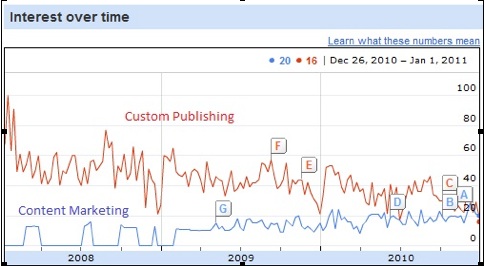Change the Game of Search by Defining Your Content Category
Joe is a leader in the content marketing space. Not only does he “get” the importance of quality, well-written content, but he’s also a fantastic evangelist who’s helping to transform the industry. I’ve always enjoyed his perspective, and I’m honored that he’s providing today’s guest post. Enjoy! — Heather
It happens all the time. A brand defines the search terms that their customers are looking for around their products and services. Then they actively create web content like blog posts, articles, ebooks and white papers around those terms.
Then the activation begins. The “content coordinator” comments on appropriate blog posts, shares the content in the right places online, does guest posts for link backs and more.
This can work. It may also produce crickets, depending on the difficulty of that keyword phrase. Sometimes, the clutter may simply be too much to cut through. I’ve seen some brands do everything possible and all the right things and still not crack the search rankings for a particular keyword.
Change the Game
I’m of the belief that the consistent creation of valuable online content can actually change the behavior of an industry…if you want it bad enough.
Our company, Junta42 and the Content Marketing Institute, made exactly this kind of move four years ago. Back in 2007, the industry of non-media companies creating media was called custom publishing. The term “custom publishing” was dominated by associations and large companies who had worked in that field for years.
We made the decision that instead of fighting for that keyword, we change the conversation. Instead, we called the industry “content marketing” My first blog post in April of 2007 was entitled “Why Content Marketing?” This was strange to literally everyone in the industry because no one had used this phrase in this way…but we dedicated ourselves to changing the game on that key phrase.
The results? Content marketing is now THE phrase used for the industry. According to Google Insights, content marketing is now used more than custom publishing worldwide. Thousands of posts, hundreds of webinars, tens of ebooks and white papers, and a ton of community support, and it happened:
This one decision has made all the difference for our business.
And we’re not alone. Citrix GoToMeeting has done the same thing with “Workshifting,” the concept that people can work from anywhere today. HubSpot has done it with inbound marketing.
This type of strategy is not easy. You may not choose the right term. Customers and industry influencers may not spread your message.
It takes a lot of customer listening and a ton of research to choose a term that will work for you, your customers, and ultimately drive business.
But, if it works, it’s a game changer. If it works you can dominate an industry within that keyword phrase and all variations of that phrase.
So, what will your phrase be?
Joe Pulizzi is founder of the Content Marketing Institute.




Great article! And a great reminder that jumping on the bandwagon of “what everyone else is doing” isn’t always the best solution. Being a thought leader requires that you have original thoughts and the courage to share them.
Thanks, Kathryn. Joe’s post is fantastic!
This reminds me of how the term for “SEO copy” has morphed and changed. Back in the day, it was called, “writing for search engines” – and conferences called it that, too. My domain name was even searchenginewriting.com. :)
Now, it’s “SEO copywriting” or “Web SEO content development.” I was hoping Google Insights would go back far enough to compare, but it only goes back to 2004.
It just goes to show the evolution of an industry – and how the terminology has evolved as well. :)
Heather…thanks for the wonderful words and all that you do to support the industry yourself.
Keep up the great work
Joe
Wow, that takes some confidence! And elbow grease for sure. But must pay off in spades… not only is it easier to rank for a “custom” term, but if you get people to embrace it, you’re now the first in the space and hence leader of the movement.
Thanks for the case study. Cheers!